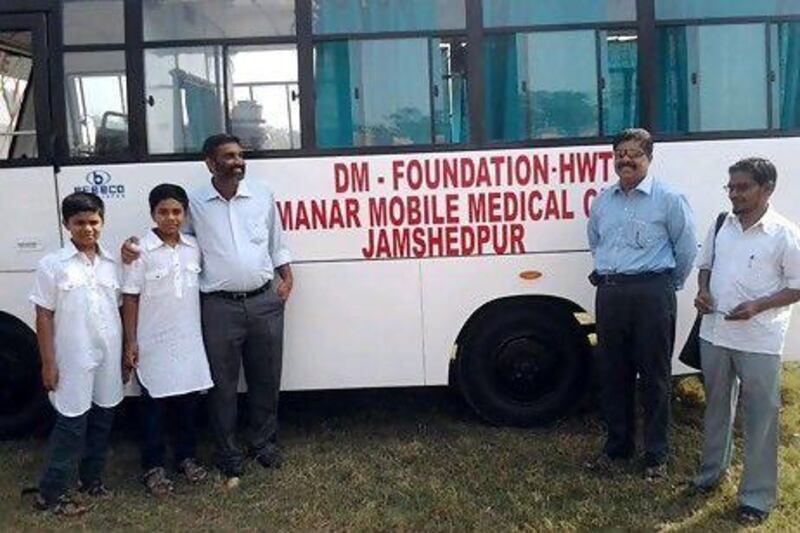As healthcare companies from the Arabian Gulf look abroad to expand their markets, charitable projects often accompany large-scale investments.
DM Healthcare Group, based in Dubai, launched a mobile clinic in the eastern Indian state of Jharkhand last month and it is investing heavily in two hospital projects in the southern part of the country. Here, Dr Azad Moopen, the chairman of DM Healthcare, talks about the mobile clinic project in India.
What is a mobile health clinic?
The mobile health clinic is a network of vans offering medical facilities on the move. The first such van [offers] primary healthcare facilities and medicines, a doctor and paramedics.
What are the challenges associated with the scheme?
[The van] will circle around the deeper districts of Jharkhand to identify people who are in need of medical help. The people, if required, will be transported to hospitals in the city for further medical attention. The technical issues involved would probably reduce our reach towards the people, such as poor infrastructure and lack of electricity … supply chain facilities can also become an issue.
How much did you invest in the mobile health clinic?
Each clinic costs between 2 million rupees (Dh128,605) and 2.5m rupees. There will be five pilot clinics in the first year. Total investment would be 10m rupees. Later we will involve other high net-worth non-resident Indians to fund the concept.
Why start a charitable health clinic in India?
I have been to north India several times and what we have noticed is the healthcare conditions compared to south India, where I am from, is quite bad, especially the primary care … transport is a major issue there.
Do you think one mobile clinic will make any difference in some of the resource-starved areas of India?
Even 100 would not make a difference. This is our pilot project and in case it is found to be effective, we want to spread our own resources as well as bring people who can help perform it with us.
What are your plans to extend the mobile health clinic line?
Once this model works out, we want to have a large network. We want to start this initially in states such as Bihar and Jharkhand. In parts of West Bengal, we are supporting with diagnostic centres, each built with a cost of about 3m rupees.
Describe the planning process.
We first identify local NGOs [non-governmental organisations]. Only in the places where there is a local NGO who can take up responsibilities, do we go ahead. We also ask them to make sure they have doctors and paramedics locally. If the NGOs meet our requirements, we hold discussions with them. We lay out the protocol for running the mobile medical vehicles and the requirements of the area.
* Sananda Sahoo





